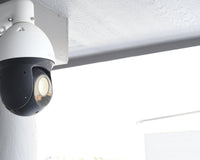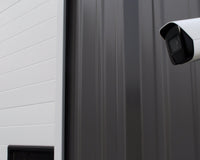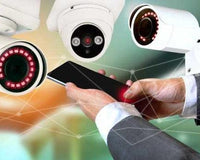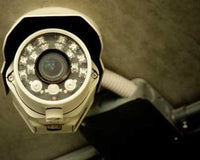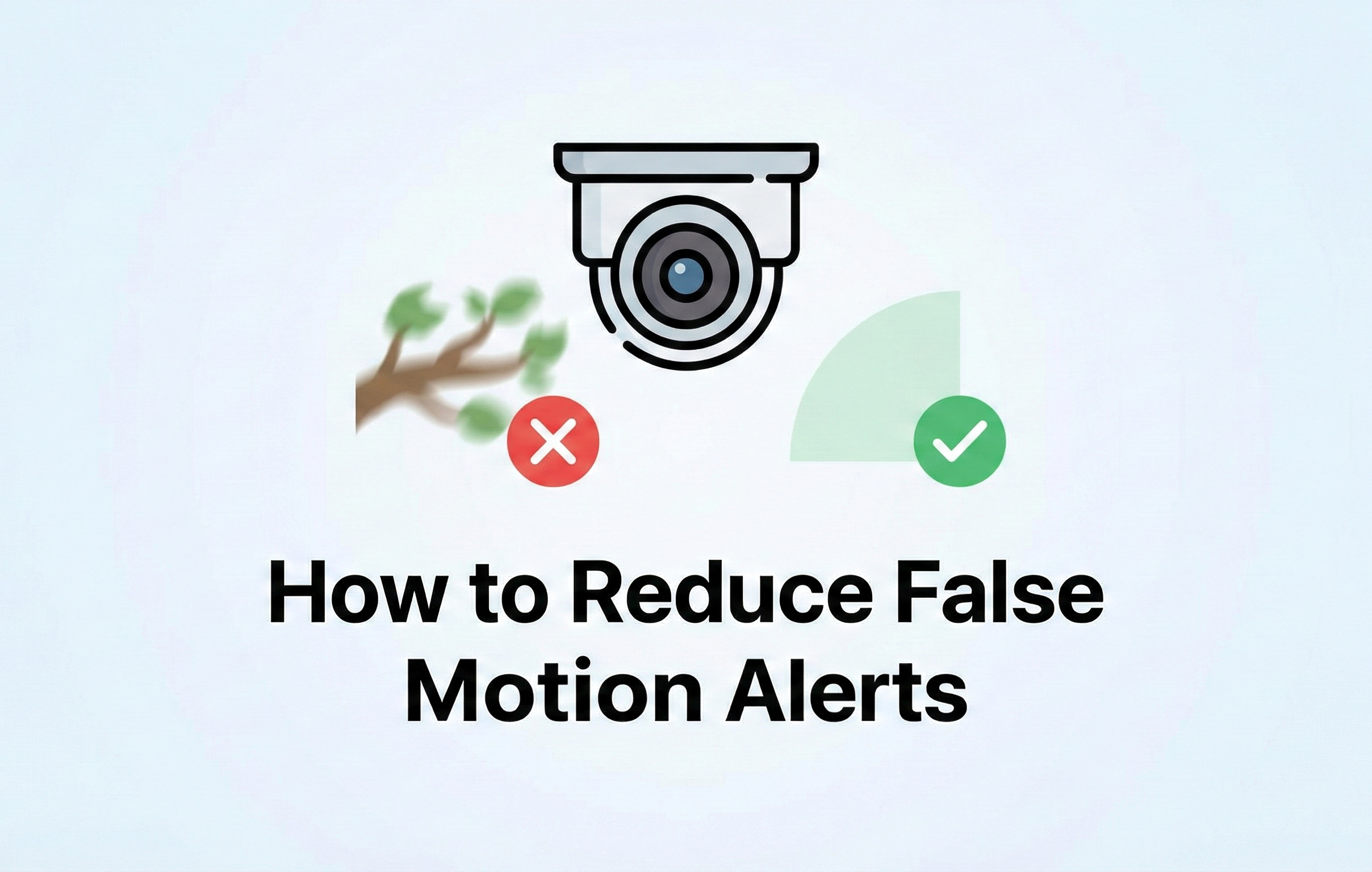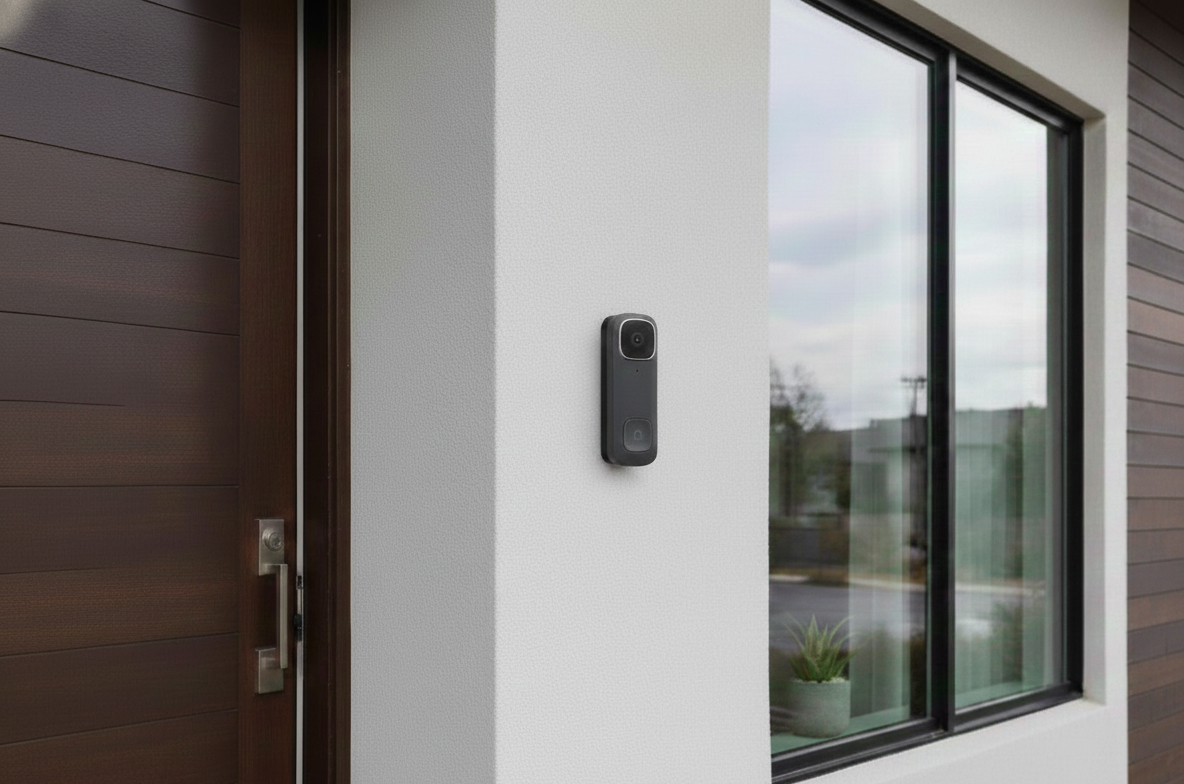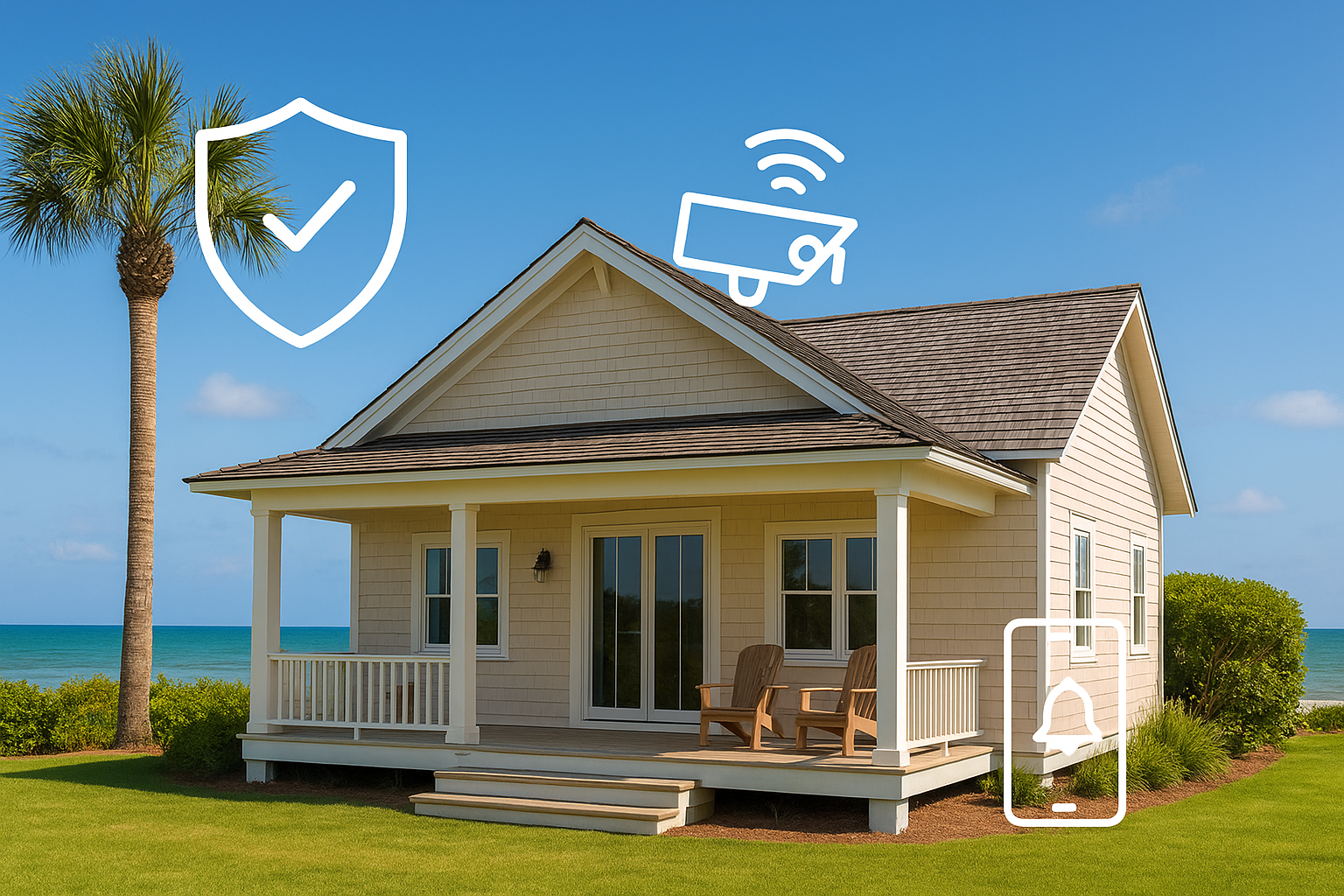You might be wondering if all security cameras have the ability to record audio.
This is an important question to ask, especially if you are considering installing security cameras in your home or business.
The answer is yes, most security cameras have the ability to record audio.
Most modern Wi-Fi cameras come with built-in microphones that they use for motion detection events.
This means that if the camera detects any movement or sound, it will automatically start recording.
This can be a valuable tool for law enforcement in investigating a crime. It can also be helpful for businesses in understanding what happened during an incident.
Audio can also be used to provide customer service or to monitor employee activity.
Read our guide to find out more about the legalities of recording audio with security cameras.
What Are The Different Types of Audio For Security Cameras?
There are three main types of audio that can be recorded by security IP cameras:
- Continuous Audio Camera Recording
- Event-Triggered Audio Camera Recording
- Two-Way Audio Camera Recording
1. Continuous cctv Cameras Recording Sound
Continuous audio recording means that the security camera is always recording.
This can be helpful if you want to have a record of everything that happens in a certain area.
However, it is important to note that continuous audio recording is not legal in most states.
This is because it can violate the privacy rights of people who are being recorded.
2. Event-Triggered Camera Recording Sound
Event-triggered audio recording means that the security camera only starts recording when it detects a certain event, such as motion or sound.
It is a good compromise between having a record of what happens in an area and respecting the privacy of people who are being recorded.
3. Two-Way Audio Recording
Two-way audio recording means that the security camera has a microphone and a speaker.
This allows people to communicate with each other through the camera. This is good for a home security camera because it allows you to talk to people who are at your door.
Two-way audio can be helpful for customer service or for monitoring employees. However, it is important to note that two-way audio can also be used to eavesdrop on people.
For this reason, it is generally not legal to use two-way audio without the consent of the people who are being recorded.
What Are The Legalities of Recording Audio with Security Cameras?
The legalities of recording audio with security cameras depend on the type of audio that is being recorded.
Continuous audio recording is not legal in most states. This is because it can violate the privacy rights of people who are being recorded.
Event-triggered audio recording is more common, and it is legal as long as the people who are being recorded are aware that they are being recorded by security cameras.
For outdoor cameras, you should display a sign that alerts people to the fact that they are being recorded. Two-way audio recording is the most invasive type of audio recording.
It is not legal to use two-way audio without the consent of the people who are being recorded.
If you are considering using audio recording with your security cameras, it is important to consult with a legal expert to make sure that you are following the law.
How Does Audio Recording Work On Security Cameras?
Audio recording on security cameras works by using a microphone to record sounds.
Most modern Wi-Fi cameras come with built-in microphones that they use for motion detection events.
This means that if the camera detects any movement or sound, it will automatically start recording.
The audio that is recorded can be stored on the camera’s internal memory or on a memory card.
It can also be streamed to a computer or other device for live monitoring.
Some cameras also come with two-way audio, which means that they have a microphone and a speaker. This allows people to communicate with each other through the camera.
Benefits Of Using Audio Recording Security Cameras
There are several benefits to using audio recording security cameras:
Deter Crime
Audio can be used to deter crime. The sound of a security camera’s audio can often be enough to deter a potential burglar or intruder.
If the audio is loud enough, it can also scare away animals that might be trying to enter your home or office.
Provide Evidence
If a crime is committed, audio from a security camera can be used as evidence.
The audio can be used to identify a suspect or to piece together what happened during the crime.
It can also be used to help law enforcement investigate a crime.
Monitor Activity
Audio can be used to monitor activity in an area. This can be helpful for businesses in understanding what happened during an incident.
It can also be used to monitor employee activity.
Customer Service
Audio can be used for customer service. For example, if you have a security camera in your store, you can use the audio to help customers who are having trouble finding an item. You can also use the audio to answer questions that customers might have.
Are There Any Drawbacks to Audio Recording?
There are a few potential drawbacks to an audio recording from security cameras.
Violate Privacy Rights
The main disadvantage of audio recording security cameras is that they can violate the privacy rights of people who are being recorded. This is because audio recordings can capture private conversations and other personal information.
If you are considering using audio recording with your security cameras, it is important to consult with a legal expert to make sure that you are following the law.
Interference
Another potential drawback of audio recording security cameras is that they can be susceptible to interference.
This is because microphones pick up all sounds, including background noise. For this reason, it is important to place microphones in areas where there is minimal background noise.
Echo
Another potential issue with audio recording security cameras is that they can pick up echoes.
This is because sound waves bounce off of surfaces and are picked up by the microphone again.
To avoid this, you should place microphones away from hard surfaces.
How to Choose an Audio Recording Security Camera
When choosing an audio recording security camera, there are a few things to keep in mind.
Audio and Video Surveillance
First, you need to decide whether you want a camera that records audio-only or one that has both audio and video.
If you only need audio, then you can save money by choosing a camera that does not have video surveillance.
However, if you think you might need both audio and video recording, then it is worth it to invest in a camera that has both.
Microphone Type
Second, you need to decide what type of microphone you want. There are two main types of microphones:
- unidirectional
- omnidirectional
Unidirectional microphones only pick up sound from one direction, while Omnidirectional microphones pick up sound from all directions.
If you only need to record audio from one direction, then a unidirectional external microphone will suffice. However, if you need to record audio from all directions, then an omnidirectional microphone is a better choice.
Storage
Third, you need to decide how you want to store the recordings. There are two main ways to store audio recordings:
- on a computer
- on a separate recording device
If you only need to store a few recordings, then you can save space by storing them on your computer. However, if you need to store a lot of recordings, then it is worth it to invest in a separate recording device.
Conclusion
Audio can be a valuable asset when it comes to security cameras. By choosing a camera with audio capabilities, you can ensure that you have the best chance of catching intruders and protecting your property.
Not only will you be able to see who is coming onto your property, but you’ll also be able to hear them. This can make all the difference in preventing theft or vandalism and ensuring that your home or business is as safe as possible.
Have you considered adding audio capabilities to your security camera system? If not, now may be the time to do so.


